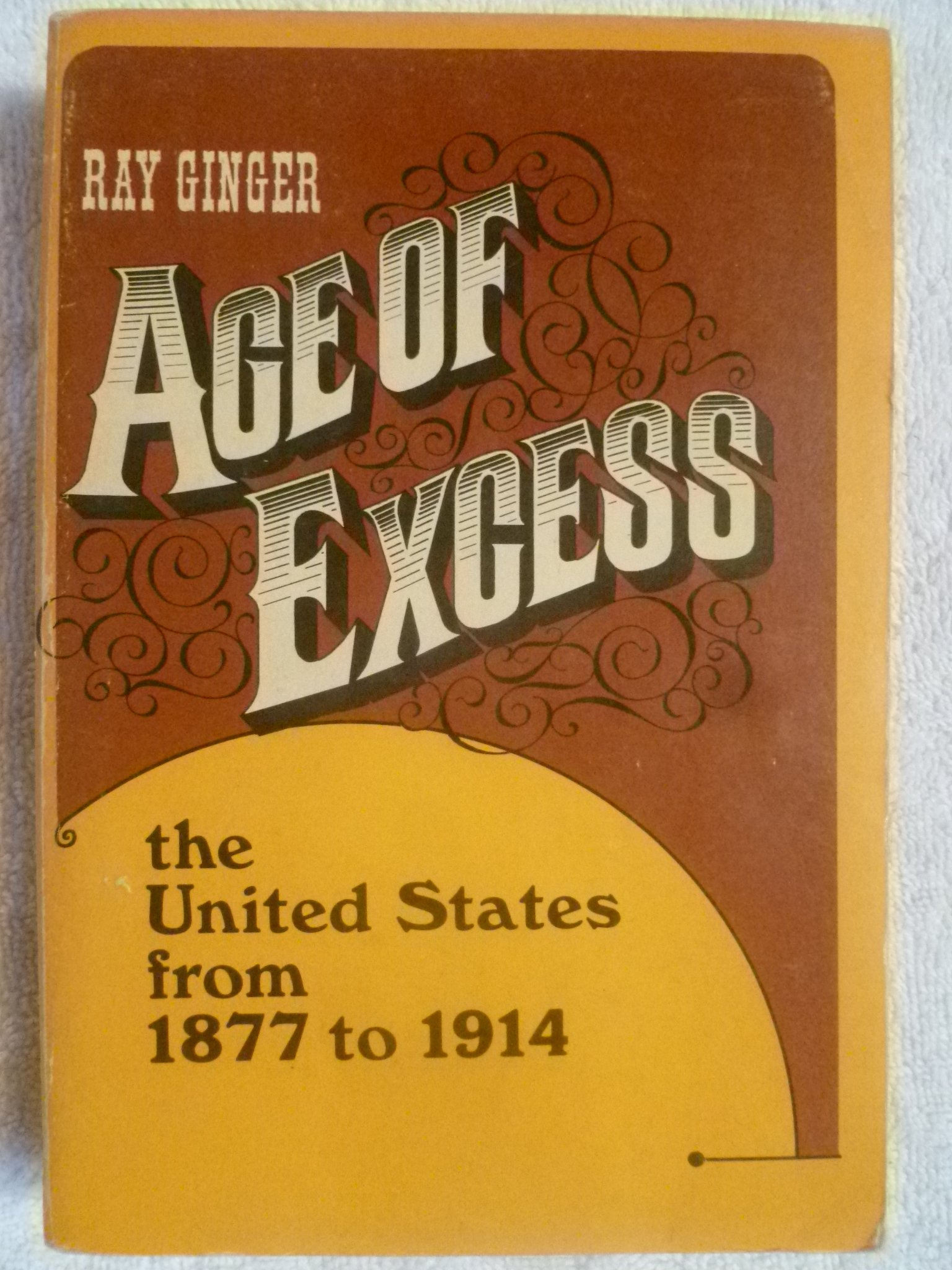This history of the United States from 1877 to 1914 provides a good background to the period and seemed a good start to my reading on the Gilded Age. The author presents material related to business, politics, and culture. That said, the writing itself seems a bit textbookish--that is to say, it doesn't quite leap off the page that the writing in a comparative book about the 1920s that I read a couple of years ago did. Why that's the case I'm not sure. I remember that other tome as being full of really great anecdotes, but Ginger isn't exactly sparing in anecdotes either. The end of each chapter is given over to short two-page biographies of people of the era, some minor some major. But perhaps that's just it: two pages summarizing a person's life, rather than a short explanation of some oddity in one day of that person's life.
In fact, I found myself most interested in the passages where Ginger provides short synopses of major books of the era and relates those to the historical and cultural milieu. It seems he does that very well. Passages on the politics sometimes became mind numbing in detail. Analysis of the culture in general, while interesting, sometimes seemed contradictory. In some places, he contends--or perhaps more accurately quotes people who contend--that the era was one of the hardest for the poor and laboring classes, or even for people in general. With eighty-four-hour work weeks and frequent economic collapses that would certainly seem to be the case. And as Americans moved into cities, life also grew harder because they moved around more and no longer had as many ties to community.
Or was it harder? Elsewhere, Ginger seems to contend the opposite. A move to the cities, for example, allowed people to accrue more wealth then they ever could have before. Standards of living rose. Because the population was expanding at such a rapid clip, an immigrant could easily walk into a new town and, through hard labor, leave a decade later a rich man. (As Ginger also brings out, however, something like 40 percent of immigrants found life in the United States too tough and actually returned home.)
What's plain is that history is complex, and one can read both narratives into any given period. But as a result of this kind of shoring of bets, in some ways, I feel like I didn't get the best handle on the era. Part of me would have enjoyed a simple thesis and set of evidence.
One thing that Ginger does convey quite effectively, however, is just how much corporations and big money began, during this era, to have their effect on our economy and our political system. I started this book around the time that the Supreme Court issued its ruling on the unconstitutionality of campaign finance limits, essentially turning the country's elections over to the highest bidder (not that, in a way, it really matters--moneyed interests find a way to get around any laws made anyway, so perhaps letting them spend as much as they like directly, with their name on any candidate or cause they sponsor, is ironically better). Especially in the early portion of the book, I was struck by the parallelisms to the nation's political system more than one hundred years ago, wherein the government generally took the side of big business, wherein antitrust laws meant to curb the abuses of big businesses were often turned around to fight unions and working people and to aid in the very abuses they were meant to curb, and wherein common people--many of whom felt powerless anyway--often sold their votes for a few useful dollars. Some things don't change.
Monday, February 8, 2010
On "The Age of Excess" by Ray Ginger ***
Labels:
Books,
Gilded Age,
Nonfiction,
Ray Ginger,
Three-Star Nonfiction
Subscribe to:
Post Comments (Atom)







No comments:
Post a Comment